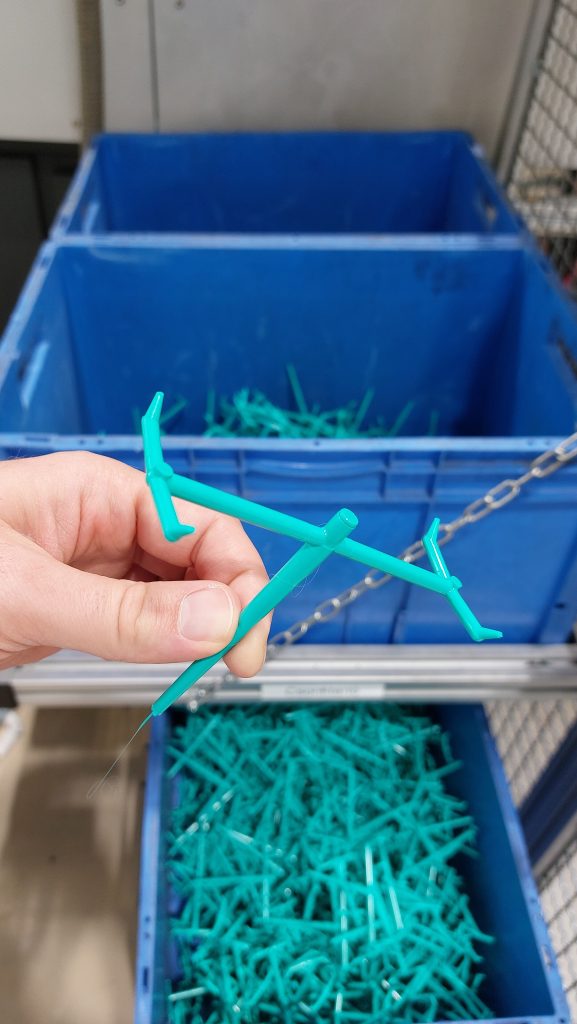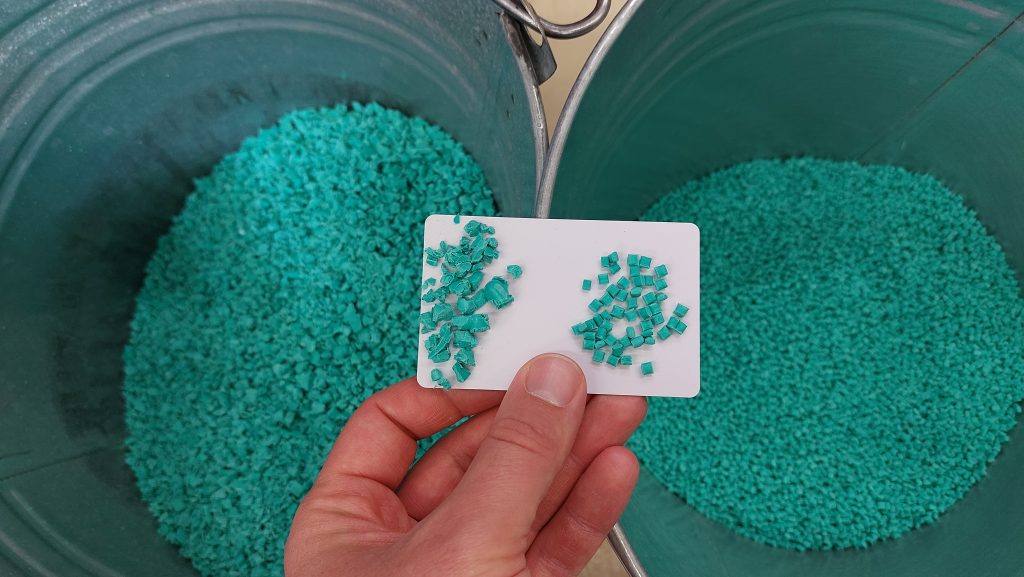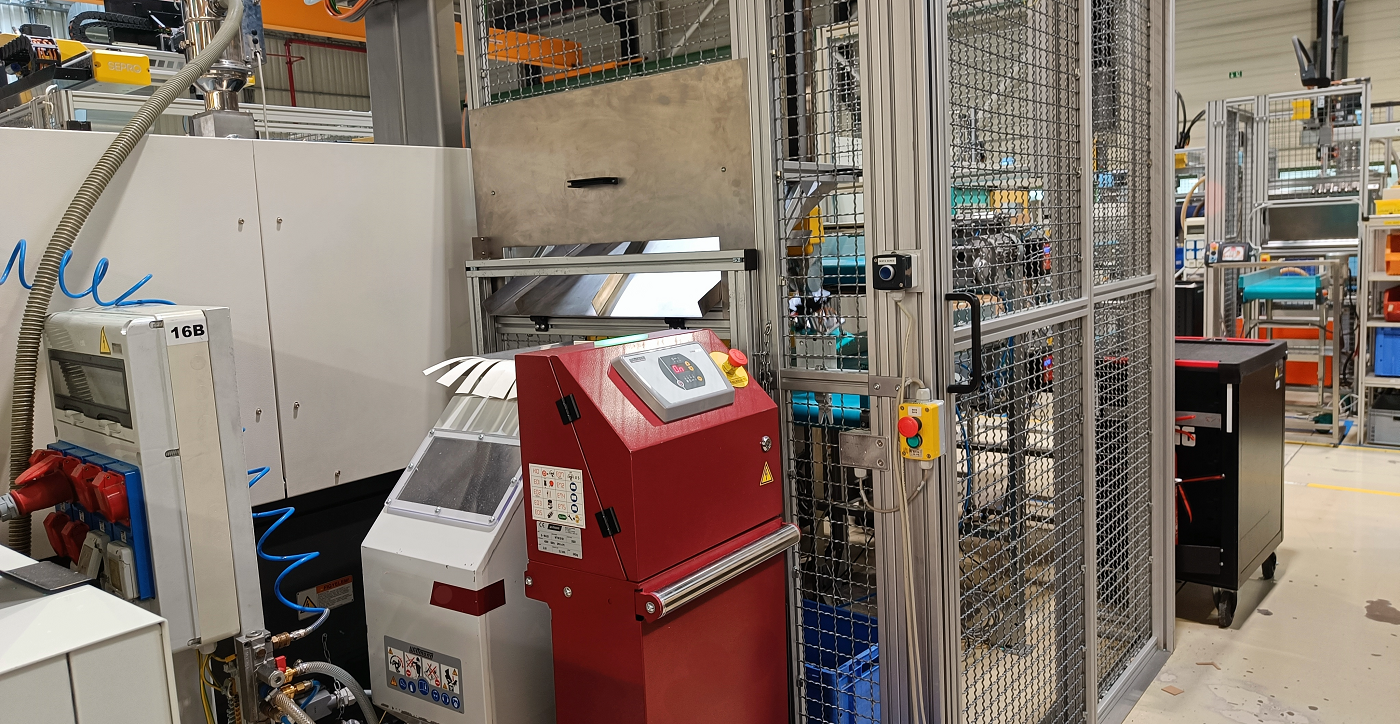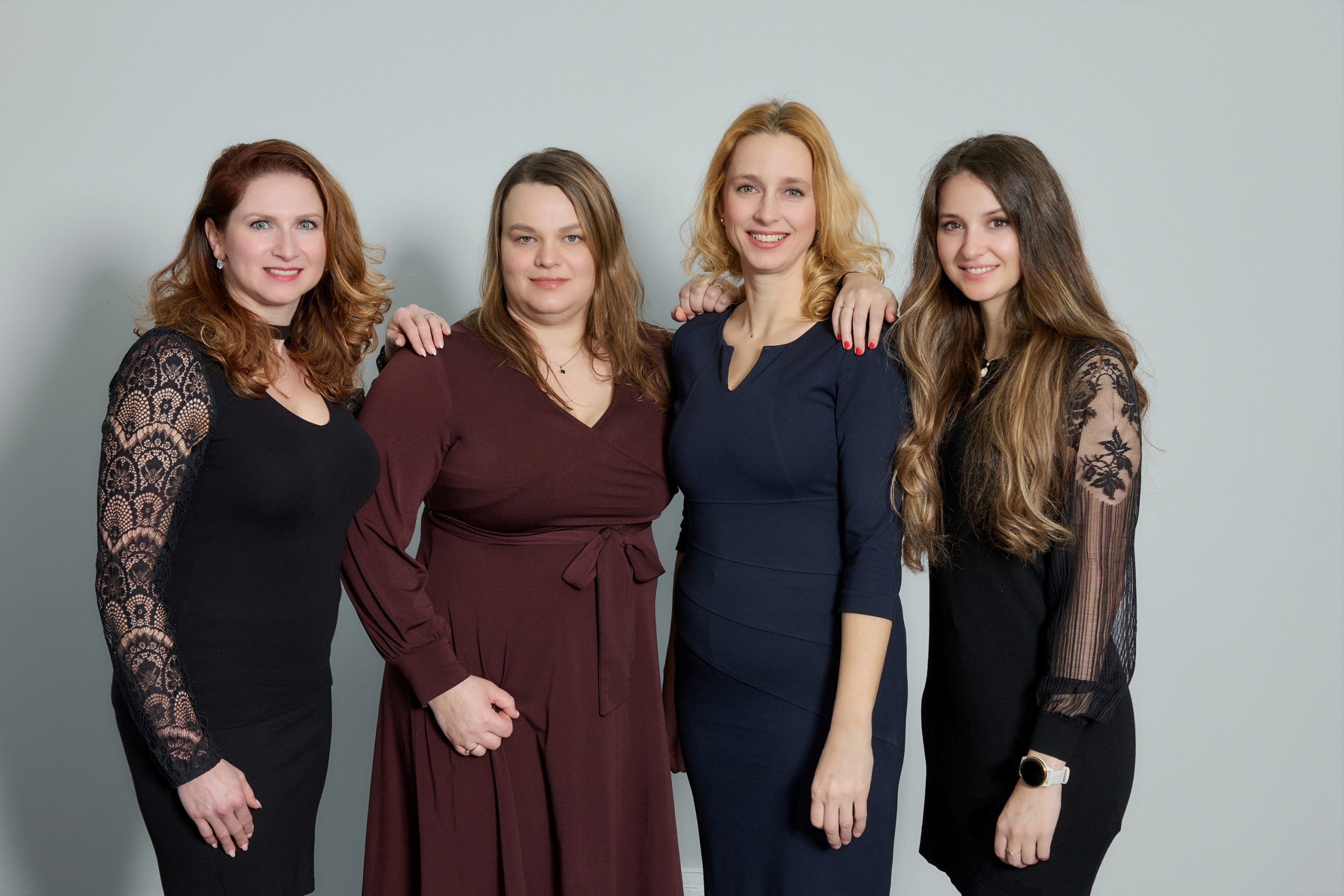The motto of this year’s World Environment Day on June 5 is “Beat plastic pollution”. The pilot project “Regrind” at the Pepperl+Fuchs site in Hungary addresses precisely this issue: How can recyclable plastic waste generated during production be reused?

In the production of plastic parts, such as sensor housings, a so-called sprue is often produced as waste material. The sprue is the part through which the liquid plastic is guided into the intended mold. This is referred to as “planned waste”. In the case of very small components, the sprue can even be larger than the finished component itself. Once the actual component has hardened, the sprue is no longer need and is removed. Until now, this waste has been sorted by type of plastic and sent to an external recycling company. As long as this waste from the processing machine consists of only one type of plastic material, it is of high purity and therefore highly valuable for recycling.
Wouldn’t it be idea to be able to reuse the material directly at the processing machine?
Regrind – small plastic particles
To reuse these recyclable in-house residues and thereby avoid waste, the Process Technology Development department in Mannheim and the Industrial Engineering team at the Pepperl+Fuchs site in Hungary launched the “Regrind” pilot project in 2023. As part of the project, a plant concept was developed and tested that makes it possible to recycle sprues directly during production. The sprues are collected and shredded next to the machine.
The result is small plastic particles of the original plastic material – the so-called “regrind”. The “regrind” is then transported to a buffer tank. The particles are approximately the same size as new granulate and are mixed with new plastic material before being reused in the injection molding machine. The regrind is automatically closed in the permitted proportion. In the project, various plastic materials and the effect of different mixture proportions on the material quality were tested, and subsequently the quality and lifespan of the final products containing regrind were evaluated. Compliance with product requirements and standards was also ensured. The project is currently running with an approved type of plastic. This means that a permitted proportion of the component weight of the sensor housings made from this one material can now be replaced with regrind material – without any loss of quality.

new granulate on the right.
Future outlook
The pilot project was successfully completed at the beginning of the year. The regrind equipment is now in permanent use at the site in Hungary. The qualification of further plastic materials is currently being evaluated.
With this project, Pepperl+Fuchs shows how the reuse of plastic waste can reduce the use of virgin material and thus costs. A small step in the production process, with a big impact on the environment.



